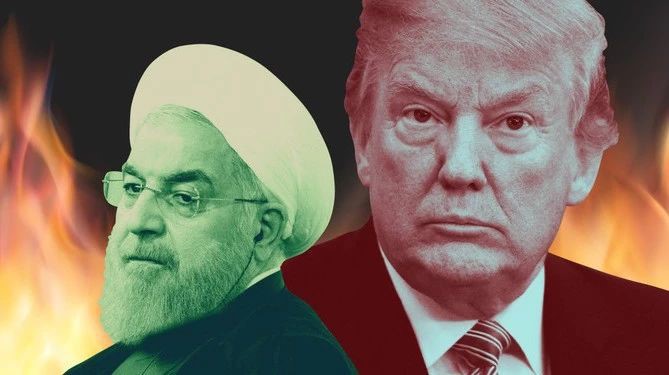(VOVWORLD) - The US’s reported deployment of an amphibious transport ship and a Patriot air defense system to the Middle East to counter what it claims is a growing threat from Iran, and tough statements from military officials of both countries have stoked tensions in the Middle East.
 (illustrative photo) (illustrative photo)
|
Relations between Tehran and Washington have been tense since Iranian President Hassan Rouhani said last Wednesday that Iran will suspend some of the commitments it made in 2015. In particular it will resume high-level uranium enrichment. Rouhani has warned of retaliatory actions if its nuclear program is brought to the UN Security Council again. Iran is responding to renewed US sanctions and US withdrawal from the nuclear deal last year.
Tit-for-tat threats
US National Security Advisor John Bolton said on Monday that the Pentagon is deploying a comprehensive military plan to counter possible attacks from Iran. It was reported that the USS Arlington amphibious transport ship and a Patriot missile battery had been sent to the Middle East. The US media reports that American B-52 bombers have been mobilised to a military base in Qatar and 5,200 soldiers have been sent to Iraq to send a message to Iran.
Iran’s senior cleric, Yousef Tabatabai-Nejad, warned that a US navy fleet could be destroyed by one Iranian missile. Iranian officials said Tehran will launch a pre-emptive attack if any US warship makes a threatening move. Iran is not intimidated by any country, President Rouhani said. Foreign Minister Mohammad Javad Zarif said it would be "suicidal" to start a war with Iran.
Since President Trump withdrew the US from the nuclear deal with Iran and 5 other countries last May, US-Iran relations have been worsening. In April the US ended exemptions from sanctions for countries still buying crude oil from Iran and told them to shift to Saudi Arabia and the United Arab Emirates. Iran’s Islamic Revolutionary Guard Corps was listed by the US as an international terrorist group. Tehran responded by adding the US army to its terrorist list and threatened to close the Strait of Hormuz, a strategic transportation route in the Middle East.
Last Wednesday, Iran said it will suspend certain nuclear deal commitments after 60 days and start increasing its uranium enrichment. President Rouhani said a collapse of the nuclear deal poses a danger to Iran and the world. Iran is ready to negotiate with the US only when the US removes economic sanctions and shows respect to Iran, Rouhani said.
A test of resolve rather than a military encounter
The public fears a military conflict but analysts say it is likely to remain a psychological war because Washington understands the economic costs if the Strait of Hormuz turns into a battlefield.
President Trump on Tuesday rejected a news report that 120,000 troops will be sent to the Middle East. Iran’s supreme leader Ali Khamenei said that “there is not going to be any war” with the US but that there will also be no renegotiation of the nuclear deal. He said the showdown was a test of resolve rather than a military encounter. Washington has called on Iran to abandon its nuclear ambitions while keeping open a military option. Both the US and Iran say they don’t want a war. But provocative actions could pull them into a conflict and put Iran back on its nuclear weapon path.